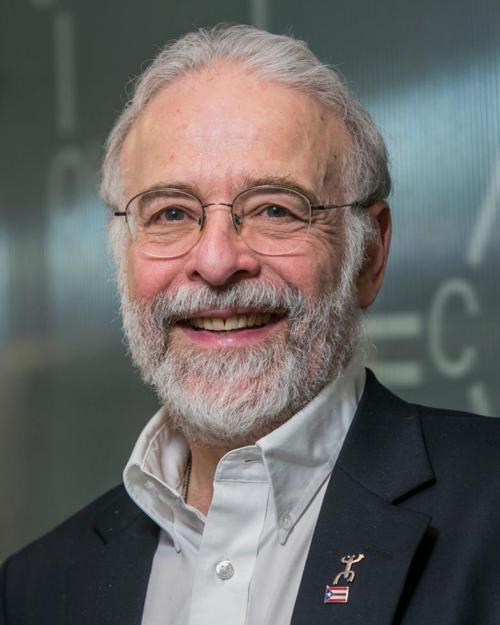Professor Héctor D. Abruña, the E. M. Chamot Professor in the Department of Chemistry and Chemical Biology in the College of Arts and Sciences, has been awarded $8.3 million to further his group’s research related to fuel cells and advanced battery technologies.
“Prof. Abruña’s work is at the forefront of research into energy conversion and storage, underscoring the leadership of the College of Arts and Sciences at Cornell in addressing pressing global challenges,” said Ray Jayawardhana, the Harold Tanner Dean of Arts and Sciences and a founding dean of The 2030 Project: A Cornell Climate Initiative. “The new funding will help accelerate and scale up these efforts towards real-world impact.”
The funding comes from the 2019 settlement of a consumer class-action lawsuit. After consumers were compensated, the remaining settlement fund of $76 million was offered, in a competitive process, to organizations such as universities and nonprofits whose work mitigates or addresses the impacts of climate change.
The A&S proposal was among 29 selected for funding, and represents the largest amount awarded to a single department.
Abruña’s research focuses on the development and characterization of new materials for fuel cells and batteries using a wide variety of techniques.
The new funding will support coordinated research, development and demonstration activities to accelerate integrating Cornell’s advanced fuel cell and battery materials into fuel cell and battery powered vehicles, respectively. To do this, it will support new fundamental and applied research in Abruña’s labs focused on these needs.
It will also support the establishment of a small fleet of fuel-cell and battery powered (EV) cars along with a renewable (“green”) hydrogen fueling station and EV fast chargers. Cornell would engage automotive manufacturing companies such as GM, Toyota, Tesla, Mercedes‐Benz, Nissan and Hyundai – many of which already have existing collaborations with Cornell – to provide the fuel-cell and battery powered vehicles that would make up the above-mentioned fleet.
The researchers also plan to modify the fuel-cell stack in one fuel cell powered car as well as the battery stack in one of the battery-powered (EV) vehicles to integrate Cornell’s fuel cell and battery technologies, respectively, making it possible to study the technologies under real world conditions.
“This is much more than fundamental research, but rather a demonstration project that will make these technologies available to the Cornell community,” Abruña said. “It will be a true living laboratory, providing access to both battery and fuel-cell operated cars to the Cornell community.”
The funding will include fast-charging battery stations and a hydrogen fueling station. The grant will also support eight researchers who will work on both battery and fuel-cell related activities, Abruña said.
“We may be the first hydrogen refueling station in New York state,” he said, “and one of a handful across the country, especially at a major university.”
Abruña said he hopes the project will inspire people across the Cornell community and beyond to get active and engaged and learn more about battery and fuel-cell powered vehicles, which hold great promise to help mitigate global climate change.
This story also appeared in the Cornell Chronicle.




